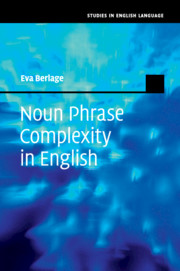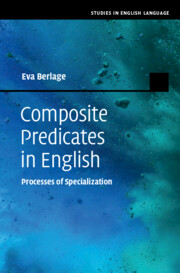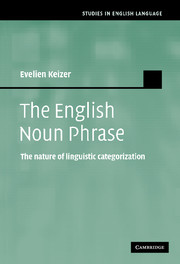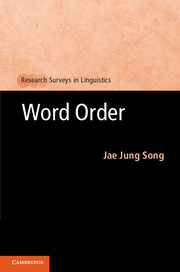Noun Phrase Complexity in English
This book explores noun phrase (NP) complexity in English, showing that it is best accounted for both by a linear and a hierarchical parameter: its length and its type of postmodifier(s). The study is methodologically unique in that it combines univariate and multivariate analyses in an investigation of four different syntactic variables. Drawing on more than three billion words of British and American data, Eva Berlage shows that the length and the structure of the NPs, along with language-external factors such as the regional variety of English, work as powerful determinants of the variation. On a theoretical level, the book reveals that the structural complexity of NPs cannot be sufficiently captured by (phrasal) node counts but that we need to incorporate the degree to which NPs are sentential. The book is designed for researchers and students interested in syntax, language variation, sociolinguistics, structural complexity and the history of English.
- Provides a new definition of the syntactic complexity of noun phrases
- Compares British and American English in the context of more and less complex noun phrases
- Proposes a new methodology to account for noun phrase complexity which shows that univariate analyses and multivariate analyses should be combined
Reviews & endorsements
'Noun phrase complexity, syntactic weight, and related notions take center stage in the empirical literature on grammatical variation. Berlage's systematic and comprehensive study is required reading for all those who are in the business of measuring and interpreting these things.' Benedikt Szmrecsanyi, Katholieke Universiteit Leuven
Product details
December 2019Paperback
9781108790420
298 pages
230 × 151 × 16 mm
0.44kg
78 b/w illus. 64 tables
Available
Table of Contents
- 1. Introduction
- 2. The variationist framework
- 3. Methodology I: defining the syntactic complexity of NPs
- 4. Methodology II: modes of data presentation, statistical procedures and electronic corpora
- 5. Optional verb phrases in topic-restricting as far as constructions
- 6. Word order variation involving the collocations take prisoner, hold prisoner and take hostage, hold hostage
- 7. Word-order variation involving pre- and postposed notwithstanding
- 8. Infinitival variation following help
- 9. NP-complexity and change
- 10. Conclusion and future directions.






